GENEMEDICS APP
GENEMEDICS NUTRITION
- 5-amino-1MQ
- Aminophylline
- Aniracetam
- ARA 290
- Argireline + Leuphasyl
- BPC-157
- Bremelanotide
- Cerebrolysin
- CJC-1295
- Delta Sleep-Inducing Peptide
- Dihexa
- Elampretide (SS-31)
- Epithalon
- FG Loop Peptide (FGL)
- GHK-Cu
- Ginsenoside Rg3
- Glycyrrhetinic Acid
- Ipamorelin
- Kisspeptin
- KPV
- LL-37
- Melanotan 1
- Melanotan 2
- Mitochondrial ORF of the twelve S c (MOTS-c)
- MK-677 (IBUTAMOREN)
- Nicotinamide Adenine Dinucleotide (NAD+)
- Nicotinamide Riboside
- NMN (Nicotinamide Mononucleotide)
- Noopept
- Pegylated Mechano Growth Factor
- Selank
- Semax
- Sermorelin
- SRT2104
- Tesamorelin
- Thymosin Alpha 1
- Thymosin Beta 4
- Tiger 17
- Valproic Acid
- Valproic acid + PTD-DBM
- Vasoactive Intestinal Peptide
- Zinc-Thymulin
Book a Free Consultation
What is Peptide Therapy?
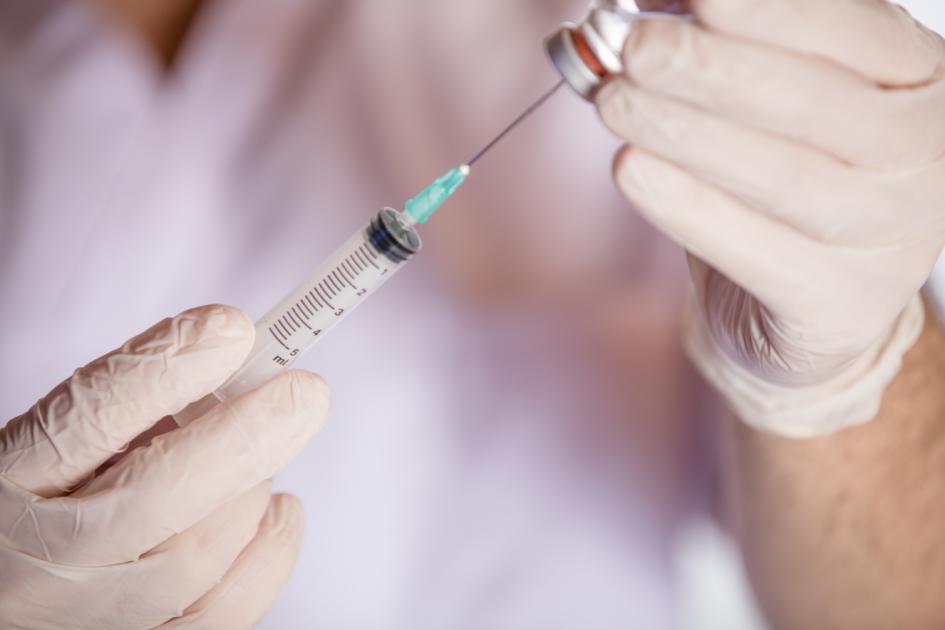
Though our bodies naturally produce peptides, the production of peptides can vary greatly by individual and as we age, the number and quality of peptides within the body may decline. Peptide hormone therapy refers to restoring the number of peptides to stimulate cellular regrowth systems within the body as a treatment option for specific conditions.
Peptide hormone therapy is a revolutionary medical discipline that leverages the therapeutic potential of peptides, naturally occurring compounds composed of short chains of amino acids. These naturally occurring peptides act as signaling molecules in the body, influencing cellular functions and promoting overall well-being. Healthcare professionals using peptide treatments can target and address various health concerns at their source by utilizing specific therapeutic peptides. Some therapeutic peptides are designed to simulate human growth hormone (HGH) and are referred to as growth hormone-releasing peptides (GHRP), while others are designed to support specific goals such as weight loss and reduction of joint/muscle pain.
What are Peptides?
Peptides are short chains of amino acids, which are the building blocks of proteins. They are smaller than proteins and typically contain fewer than 50 amino acids. Amino acids are organic compounds containing an amino group (-NH2), a carboxyl group (-COOH), and a side chain specific to the chemical structure of each amino acid.
Peptides are formed when amino acids join together through peptide bonds, which occur between the carboxyl group of one amino acid and the amino group of another. The resulting chain of amino acids is called a peptide chain.
Peptides play crucial roles in various biological processes and functions within living organisms. They can act as signaling molecules, transmitting information between cells, tissues, and organs. Peptides can also have specific biological functions within other cells, such as regulating enzyme activity, protein synthesis, hormone growth, and cell communication.
Peptides have gained significant attention recently due to their potential therapeutic applications and its application as an HGH stimulant. Specific peptides have been developed into drugs to treat various medical conditions, including hormonal disorders, cancer, and autoimmune diseases.
It’s worth noting that there are different types of peptides with specific names based on their length and function. For example, dipeptides consist of two amino acids, tripeptides have three amino acids, and oligopeptides have a small number of amino acids (usually less than 20).
Why Do You Need Peptide Therapy?

Peptide therapy may be considered by individuals with specific medical conditions or health goals that could benefit from the targeted effects of peptides. Here are some examples:
- Hormonal Imbalances:
Peptides can be used to further regulate hormones and optimize hormonal function. For instance, individuals with deficiencies or imbalances in growth hormones, thyroid hormone therapy, hormones, or sex hormones may explore peptide therapy to restore balance and improve sexual function.
- Age-related Concerns:
Age, stress, and changes in diet can cause peptide production disruption, resulting in peptide degradation. Peptide therapy is sometimes sought for anti-aging purposes. Specific peptides may promote collagen production, skin rejuvenation, and tissue repair, potentially the skin barrier and addressing age-related concerns such as wrinkles, sagging skin, and reduced vitality. It can also improve memory and energy, while boosting the body’s metabolic function.
- Athletic Performance and Recovery:
Some peptides have been studied for their potential to enhance athletic performance, increase lean muscle mass, make muscle tissue improve endurance, and facilitate post-exercise recovery of muscle tissue. Athletes and fitness enthusiasts may explore the benefits of peptide and therapy to support their training and recovery regimens.
- Metabolic Disorders:
Peptides can influence metabolic processes such as glucose regulation, lipid metabolism, and appetite control. Peptide therapy may be considered in metabolic functions and disorders, such as obesity, irritable bowel syndrome (IBS) insulin resistance or diabetes, to modulate these pathways.
- Immune System Modulation:
Certain peptides have immune-modulating properties, which can regulate immune responses and potentially be used in conditions such as autoimmune disorders, allergies, or immunodeficiency. You’ll experience an increase in muscle mass, pain relief, or improved libido
Peptide therapy has gained attention in the field of medicine for several reasons. Here are some key benefits of peptide therapy and reasons why peptide therapy is being explored:
- Targeted Effects:
Peptides can be designed to have specific effects on the body. They can mimic or block the actions of natural peptides or proteins in the body, influencing various physiological processes. This targeted approach allows for more precise and specific therapeutic interventions.
- Increased Safety:
Peptides are generally well-tolerated and have a lower risk of adverse effects than other medications. They typically have a shorter half-life in the body, reducing the risk of accumulation and minimizing potential long-term side effects.
- Diverse Therapeutic Potential:
Peptides have a wide range of potential therapeutic applications. They can be developed to target various conditions, such as hormonal imbalances, metabolic disorders, immune and nervous system, dysfunctions, and neurological conditions. Peptides can also be used for wound healing, tissue repair, and anti-aging.
- Personalized Medicine:
Peptide therapy has the potential to be personalized based on an individual’s specific needs. Peptides can be tailored to target specific receptors or pathways, considering a person’s genetic makeup, lifestyle, and medical history. This individualized approach may lead to more effective and efficient treatments.
- Biocompatibility:
Peptides are derived from naturally occurring amino acids, making them biocompatible with the human body. They are less likely to trigger immune reactions or cause allergic responses, increasing their safety profile.
It’s important to note that peptide therapy is still an evolving field, and research is ongoing to explore its potential applications further and optimize its effectiveness. Clinical trials and studies are being conducted to validate the safety and efficacy of specific peptide-based treatments. Now that you have more insights about the variety of peptide treatments available, learn more about what they can do for you.
Different Kinds of Peptide Therapies:
Peptide therapy encompasses diverse treatment options to address specific health conditions and promote wellness. Some common types of peptide therapies include:
- Growth Hormone Releasing Peptides (GHRPs): These peptides stimulate the body’s growth hormone production, which plays a crucial role in growth, metabolism, and cellular repair.
- Thymosin Peptides: Thymosin peptides help regulate the immune system, promote tissue repair, and support overall immune health.
- BPC-157 Peptides: Known for its regenerative properties, BPC-157 aids in tissue repair, reducing inflammation, and promoting gut health.
- Melanotan Peptides: Melanotan peptides stimulate melanin production, offering benefits such as improved skin pigmentation and protection against harmful UV radiation.
- CJC-1295 Peptides: CJC-1295 enhances growth hormone secretion, leading to potential benefits such as increased muscle mass, improved fat metabolism, and enhanced recovery.
- 5-amino-1MQ Peptides: 5-amino-1MQ is a peptide therapy with the potential for treating neurodegenerative diseases. It reduces oxidative stress and inflammation in the brain, which are believed to contribute to conditions like Alzheimer’s and Parkinson’s disease.
- Ipamorelin Peptides: Ipamorelin is a peptide that stimulates the release of growth hormone and insulin-like growth factor 1 (IGF-1). It is used for various purposes, including muscle growth, recovery, and anti-aging.
- Tesamorelin Peptides: Tesamorelin is a peptide therapy used to treat excess abdominal fat in HIV patients with lipodystrophy. It increases growth hormone levels, which helps reduce visceral adipose tissue.
- Amlexanox Peptides: Amlexanox is a peptide-based medication primarily used to treat canker sores (aphthous ulcers). It has anti-inflammatory and antiallergic properties and is available in topical form.
- AOD 9604 Peptides: AOD 9604 is a peptide fragment derived from human growth hormone (HGH). It is sometimes used for weight loss purposes and is believed to help reduce body fat.
- GHK-Cu Peptides: GHK-Cu is a peptide of three amino acids (glycine, histidine, and lysine) bound to copper. It has been studied for its potential anti-aging and wound-recovery properties and its ability to promote collagen production and skin care.
- Dihexa Peptides: Dihexa is a peptide showing neuroprotective effects in preclinical studies. It is being researched for its potential in treating neurodegenerative disorders, particularly Alzheimer’s.
- Thymosin Alpha-1 Peptides: Thymosin Alpha-1 is a peptide derived from the thymus gland. It has immunomodulatory properties and treats certain viral infections, cancer, and immune disorders.
- Thymosin Beta 4 Peptides: Thymosin Beta 4 is another peptide derived from the thymus gland. It plays a role in tissue repair and wound healing and has been studied for its potential therapeutic applications in cardiac and neurological conditions.
- Noopept Peptides: Noopept is a synthetic peptide nootropic believed to enhance cognitive function and memory. It is often used as a study aid or for improving mental performance.
What are the benefits of peptide therapy?
Peptide therapy offers a range of potential benefits, making it an exciting field of exploration for healthcare professionals and individuals seeking alternative treatment options. Here are some ways peptides can potentially benefit you:
- Peptide Therapy for Skin Health:
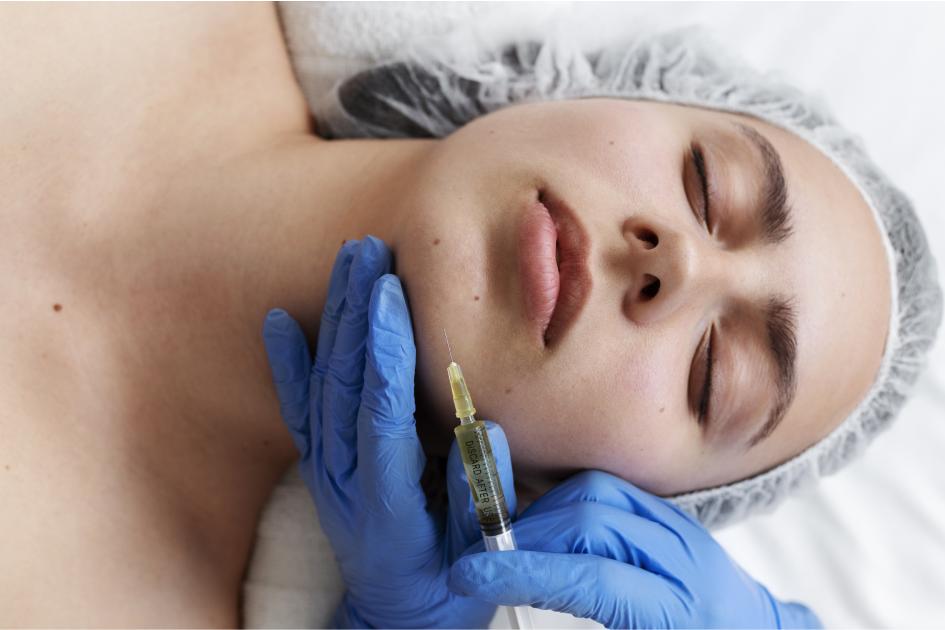
Peptides like collagen and copper are commonly used in skincare products. Collagen peptides can promote skin elasticity, reduce the appearance of wrinkles, and improve overall skin care. Growth hormone secretagogues are a new, innovative therapy that increases one’s own natural human growth hormone production treating age-related conditions, slowing the aging process, and restoring youth. Copper peptides can help in injury healing process and have antioxidant properties. Some of them also have antimicrobial properties, which help fight bacteria that cause acne.
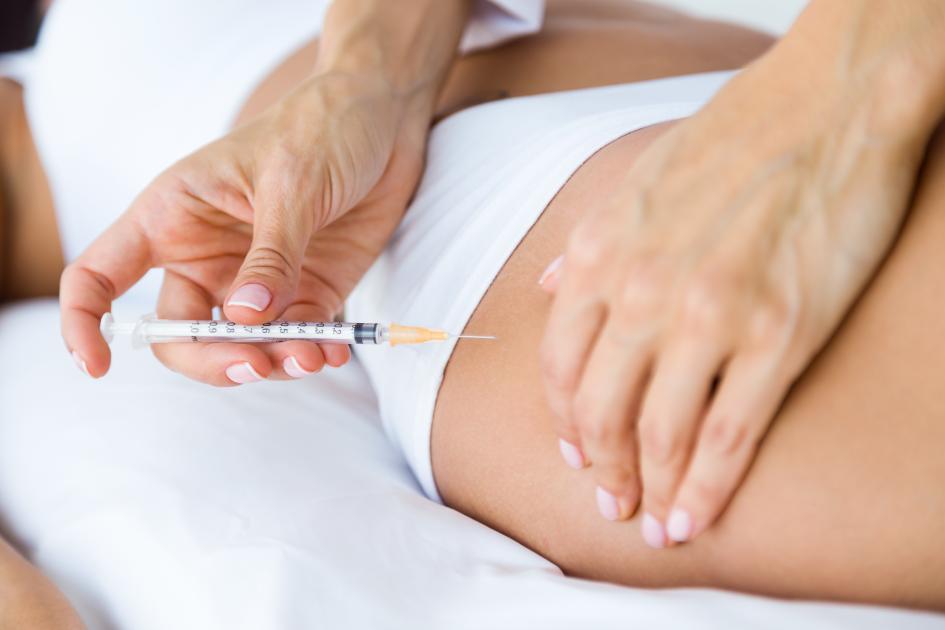
Peptides known as peptide YY (PYY) and glucagon-like peptide-1 (GLP-1) can influence appetite and satiety, potentially regulating metabolism and aiding in weight loss efforts. Peptide therapy is the future of regenerative medicine and peptides for weight loss are radically changing the lives of patients as it stimulates the pituitary gland similar to HGH and other growth hormones to speed up the metabolism and increase weight loss for the better everywhere. Peptide Therapy to Lose Weight is an important component of medical weight loss programs and have a revolutionary impact on improving the quality of life of obese people with weight loss, increased libido, more lean muscle mass, and a better mood. These peptides also help regulate food intake, reduce cravings, reduce inflammation and promote a feeling of fullness. Morover, it significantly stimulates the pituitary gland, speeds up metabolic function, and burns fat in the process.
- Peptide Therapy for Cognitive Function:
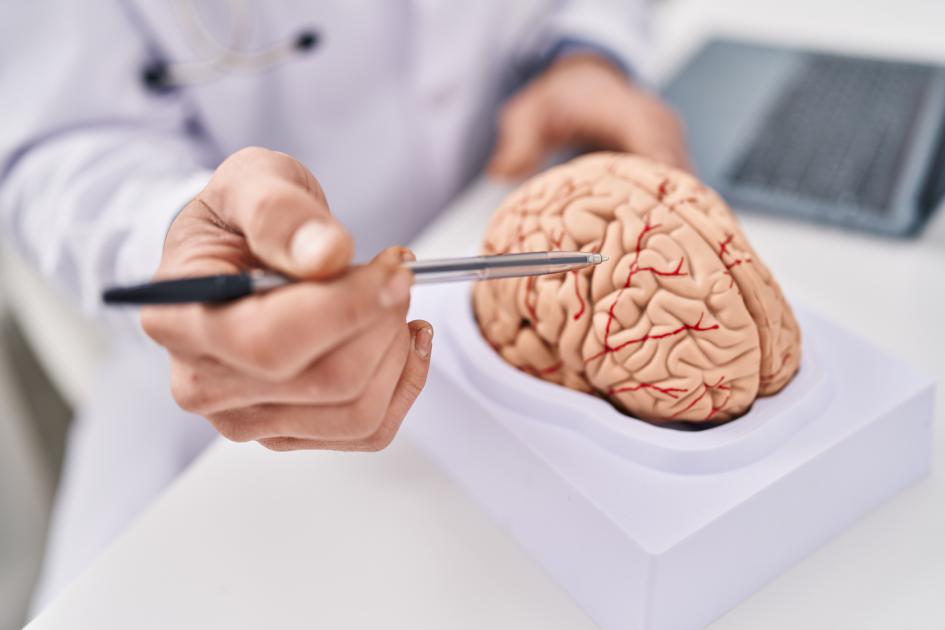
Some peptides, like nootropics, have been studied for their potential cognitive-enhancing effects. These and other peptides may improve memory, focus, and mental clarity. Examples include peptide semax and cerebrolysin.
- Peptide Therapy for Immune Support:

Certain other natural peptides also can modulate immunity and promote immunity function. Thymosin alpha-1, for instance, is a peptide that can enhance the activity of immune cells and help fight off infections.
- Peptide Therapy for Injury Recovery:

Antimicrobial peptides (AMPs) are a class of small peptides that widely exist in nature and they are an important part of the innate immune system of different organisms that helps your body fight bacteria and promote healing. When in need, peptides like BPC-157 (Body Protection Compound) and TB-500 (Thymosin Beta-4) have been investigated for their potential to accelerate healing and recovery from injuries. Some common functions of peptides include providing pain relief, and aiding in soft tissue repair for accelerating the healing processes. They may aid in tissue repair, reduce inflammation, and enhance the formation of new blood vessels.
- Peptide Therapy for Hair Loss:
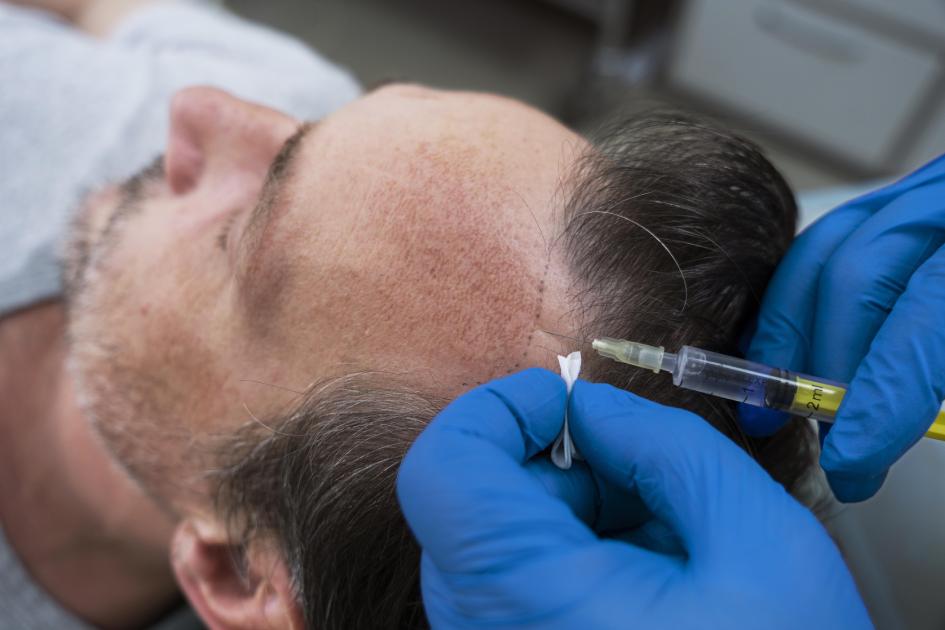
Certain natural peptides that can stimulate hair growth hormone and follicle growth and improve hair density. These peptides promote blood circulation to the scalp, increase nutrient supply, increase blood flow and stimulate hair by natural growth hormone and follicle activity.
- Benefits with increasing libido:
The peptide therapy is an effective, efficient solution for sexual dysfunction and/or erectile dysfunction and low libido in men, as well as female sexual arousal disorder in women. It works directly through the nervous system to increase arousal, sexual desire, and satisfaction with sex — along with the ability to increase blood flow to the penis or vagina and clitoris.
Side Effects of Peptide Therapy:
While peptide therapy is generally considered safe, it is essential to acknowledge that individual responses can vary, and some may experience side effects. Commonly reported side effects include:
- Injection site reactions:
Peptide therapy often involves injections, and it’s common to experience mild reactions at the injection site. These can include redness, swelling, tenderness, or bruising. These reactions are usually temporary and resolve on their own.
- Allergic reactions:
Individuals may sometimes develop an allergic response to the peptide being administered. Symptoms can range from mild to severe, including rash, itching, hives, difficulty breathing, or swelling of the face, lips, tongue, or throat. If an allergic reaction occurs, immediate medical attention should be sought.
- Nausea and gastrointestinal discomfort:
Peptides affecting the digestive system can cause gastrointestinal side effects such as nausea, vomiting, and diarrhea or abdominal discomfort. These symptoms are usually mild and transient.
- Headaches:
Some individuals may experience headaches as a side effect of the peptide therapy treatments. These headaches are typically mild and resolve on their own.
- Fatigue and drowsiness:
Peptide therapy can occasionally cause fatigue and drowsiness. These side effects are usually temporary and improve over time.
- Changes in appetite:
Peptide therapy may affect appetite, leading to weight loss and increased or even weight loss decreased hunger. These changes are generally temporary and resolve as the body adjusts to the treatment.
- Fluctuations in blood sugar levels:
Certain peptides can influence blood sugar levels. Individuals with diabetes or those at risk of blood sugar imbalances should closely monitor their glucose levels during peptide therapy.
How Long Does It Take Peptide Therapy to Work?
The timeframe for peptide therapy to exhibit noticeable effects varies depending on several factors, such as the specific condition being treated, the individual’s overall health, and the chosen, peptide treatment formulation. While some individuals may experience positive changes within days or weeks, others might require more prolonged treatment periods to witness significant improvements. It is essential to remember that individual responses can differ, and personalized peptide treatment and plans are often developed based on each patient’s unique needs.
Peptide therapy presents an exciting frontier in healthcare, harnessing the power of naturally occurring peptides to promote healing, optimize performance, and support overall health and well-being. With its potential benefits and diverse applications, peptide therapy offers new possibilities for individuals seeking alternative treatment options. Peptide injections deliver peptides directly to the bloodstream, bypassing the digestive system and achieving the highest absorption rate possible. In addition to better absorption, peptide injections are also bioavailable right away, meaning your body can start using peptides almost immediately. However, working closely with healthcare professionals to develop personalized treatment plans and monitor responses to ensure optimal safety and efficacy is crucial. As this field continues to evolve, peptide therapy promises to revolutionize how we approach healthcare and achieve optimal wellness.
FAQ
Is Peptide Therapy Suitable for Everyone?
Peptide therapy may not be suitable for everyone, depending on individual circumstances. Factors such as medical history, current medications, allergies, and underlying health conditions can influence the suitability of peptide therapy. It is essential to consult with a knowledgeable healthcare professional to determine if peptide therapy is right for you.
Can Peptide Therapy Be Used in Combination With Other Treatments?
Peptide therapy can often be used in conjunction with other treatments. You must inform your healthcare provider about any other medications or therapies you are undergoing to ensure compatibility and prevent any potential drug interactions.
Is Peptide Therapies Safe?
The procedure for administering peptide injections is simple and considered painless for most people. When used appropriately and under the supervision of a qualified healthcare professional, peptide therapies or HGH peptide therapy are generally considered safe. Peptides are naturally occurring substances in the body and are well-tolerated by most individuals. However, like any medical treatment, there can be potential side effects or risks associated with certain peptides, dosages, or administration methods. It is essential to consult with a healthcare provider experienced in peptide therapy to assess individual suitability and monitor for adverse reactions.
How Fast Do You See Results From Peptide Therapy?
The timeline for seeing results from peptide therapy can vary depending on several factors, including the specific peptide treatment being used, the individual’s unique physiology, and the condition being addressed. In some cases, individuals may start noticing improvements within a few weeks of starting their peptide therapy treatments, while for others, it may take several months. It is important to consult with a healthcare professional experienced in peptide therapy to better understand the expected timeline for your specific situation.
Do You Need a Prescription for Peptide Therapy?
Yes, peptide therapy typically requires a prescription from a qualified healthcare professional. Peptides are a class of drugs that are regulated and should be used under medical supervision. A healthcare provider will evaluate your health condition, assess the potential benefits and risks of peptide therapy, and prescribe the appropriate peptides and dosage based on your needs.
Does Insurance Cover Peptide Medications?
Whether or not insurance covers peptide medications can vary depending on several factors, including the specific insurance plan and the reason for prescribing the peptides. In some cases, insurance may cover certain peptide medications if they are deemed medically necessary and prescribed for a covered condition. However, it is important to check with your insurance provider to determine the specific coverage details, including any limitations or requirements that may apply to peptide medications.
Success Stories
 before after
before after
At the age of 60, I look and feel better than I ever have in my entire life! Switching my health program and hormone replacement therapy regimen over to Genemedics was one of the best decisions I’ve ever made in my life! Genemedics and Dr George have significantly improved my quality of life and also dramatically improved my overall health. I hav...
Nick Cassavetes ,60 yrs old
Movie Director (“The Notebook”, “John Q”, “Alpha Dog”), Actor and Writer
 Before After
Before After
I am now in my mid-sixties and feel better than I did in my 20’s. Many people have commented that I actually look 20 years younger since I started the program at Genemedics.
Calling Dr. George has proven to be one of the best decisions I have made in my life. Doctors and society convince us that developing various health issues and negative sy...
Pamela Hill ,66 yrs old
Call 800-277-4041 for a Free Consultation
- Usually takes 15-30 minutes
- Completely confidential
- No obligation to purchase anything
- We will discuss your symptoms along with your health and fitness goals
- Free post-consult access for any additional questions you may have
About
Genemedics® Health Institute is a global premier institute dedicated to revolutionizing health and medicine through healthy lifestyle education, guidance and accountability in harmony with functional medicine. Our physician-supervised health programs are personally customized to help you reach your health and fitness goals while looking and feeling better than ever.
Quick Links
Our Services
Our Locations
© Copyright Genemedics Health Institute. All Rights Reserved. Privacy Policy.

